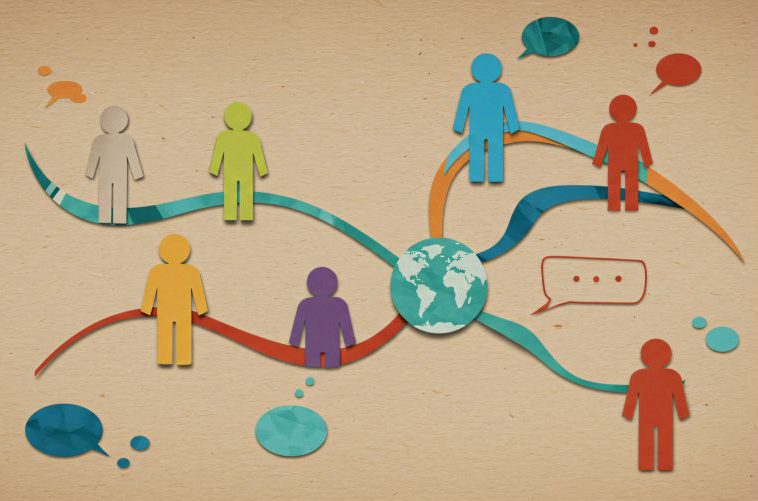

How To Get Recognition for Your Creative Writing
Posted January 18, 2022, 3:00 pm by
Romaissaa Benzizoune is currently pursuing a Master's degree in Middle Eastern Studies at New York University. She a proud alum of Girls Write Now and the Scholastic Art & Writing Awards. Read on to hear why she thinks recognition for creative writing is so important!
Creative Writing and Recognition
I have been writing since I was a child, and my earliest recollection of being praised for it was in the first grade. On white paper dashed to steady wayward letters, and their wayward authors responsible for them, I wrote a story called “At the Beach.” It was probably exactly what it sounds like. Ms. Robinson pored over the story when I handed it to her, and when she looked up at me, it was like I had discovered under her desk a hatch to the Kingdom of Narnia.
I’m opening with this small recognition because I do think it’s important. Obviously, there’s not much you can be impressed with at a first-grade level—maybe my great achievement was that the story was coherent. Maybe Ms. Robinson was sick of receiving misspelled, oversized hieroglyphics; patchwork clauses that were irrelevant to the prompt or to each other. Maybe she went home and complained to her husband about these sentences, and my own were a reminder that sometimes her profession felt worth it. (Just kidding, she was very sweet). Anyway, whatever it was she saw in the story, it made me feel really good. It made me feel like the thoughts in my head mattered, and perhaps held a life outside of me.
Little Moments of Recognition
In fact, I remember all the little moments of recognition: an English teacher pulling me aside in middle school, kneeling beside me with a flushed face, telling me in his Irish accent that I should enter the Scholastic Awards. I remember the antsy feeling of waiting for the Awards results that year and every year after, scouring the winners’ spreadsheet of proper nouns (city names, school names, first names, and last names) for the combination that identified me. Some of my fondest high school memories involve presenting work.
One memory that stands out to me is reading a slam poemat the NYC regional Scholastic Awards ceremony. I had edited it for the millionth time on the crosstown bus over. It was a poem about unrequited love, and race, and feeling unlovable. At that event, I loved meeting the Scholastic staff that were behind it all—the faces behind the emails—and wandering galleries full of paintings from my more visually artistic peers. The Scholastic Awards were huge to me, reaffirming year after year that someone was reading my work. When I was invited back in 2018 to edit the Scholastic Awards’ annual anthology Best Teen Writing, and again last summer to lead a writing workshop with a cohort of Award alums, I was thrilled.
Since my Scholastic Awards days, I have published personal essays in The New York Times, Buzzfeed, and Teen Vogue. I’ve written poetry and short stories for an Arab-American magazine called Mizna and Roxane Gay’s The Butter (sadly, now defunct). I’ve also written lifestyle pieces for Hello Giggles and Architectural Digest. Although I have a Substack newsletter called “One Thing,” freelance writing has taken a backseat (still open to commissions, though!) Instead, I’ve rediscovered fiction: Everything Inside, a collection of stories by Edwidge Danticat, has been majorly inspirational in that way.
How to Feel Good About Your Creative Writing
For a young writer, external validation can be important. Ideally, one should build up their confidence like a fortress, so that it is unshakeable to the outside world, and so that external validation isn’t really necessary. But building your fortress is hard when you’re just starting out. A lot of things get in the way: age, race, class, family trauma, gender identity, sexual orientation, etc. If you come from any sort of disadvantaged background, it is more than likely that writing has not been encouraged to you. This may make it difficult to write at all, much less feel good about said writing. Even today, I sometimes struggle to describe myself as I writer. My inner monologue resists immediately: well, yes, I’ve written a few pieces, but am I a “writer”?
In a Spotify interview, Camilla Cabello describes feeling uncertain during the songwriting process: at times wondering who she is, what she’s doing, and whether she even knows how to write a song. She says afterwards: “But the truth is, everybody struggles with those feelings…even the people you most idealize.”
I think there’s a lot of truth to this. While I don’t claim to know what the writers I idealize are thinking, I can relate to feeling like fraud, no matter what I achieve. To any young writers out there, I would emphasize that insecurity is a part of the process, and not a sign that you should give up. It took me way too long to realize that being hard on myself is not helpful; most of the time, rather than pushing me to do better, it paralyzes me entirely. In this way it is me, and not anyone else, that gets in the way of my own process.
Handling Rejection
Cabello also notes in the interview: “We’re all just trying things and getting it wrong and then trying again.” I think this is especially relevant to freelance writing, a profession in which you are always trying out different pitches, beats, editors, and publications, hoping to strike the right combination. Another piece of advice: being published is often a numbers game. I have been rejected, in all senses of the word, dozens and dozens of times. When you see someone’s byline in a magazine, you do not see the 16 other places that shot the piece down. You do not see the 37 other pitches, brainstormed at around the same time, that never found a home. Sometimes, the difference between being published and not being published is persistence. Before I got published somewhere, I was not published anywhere. I was just a writer who pitched a lot, and that is just how it is.
Pitching itself should be considered reason to celebrate. Even if you do not get a reply, you’ve done it: you’ve put yourself out there, and allowed people to read and even reject your work. That takes a lot of guts, and is a step that in and of itself should be celebrated. That is, if you’re trying to get published—I firmly believe that being published does not have to be your end goal as a writer. Maybe it isn’t.
You're Not Just a Writer
Something that helps ground me when the pressure is on is reminding myself that I’m not JUST a writer. You don’t have to walk around your neighborhood with the constant pressure of being the next Proust (or Carmen Maria Machado or Raven Leilani) flattening you like a French press. Maybe you’re also a sister, an amateur hip hop dancer, a Love Island fan, an aspiring botanist, or someone with a knack for putting together prints. You are so many things, and you can do so many things, and none of them have to be everything. Sometimes, in order to find writing inspiration, you have to ease up on the pressure and allow yourself to live a little.
When I am having trouble building my fortress—which is very much a work in progress—it helps to remember the times that I have been recognized. My Scholastic memories are helpful for this, as is the memory of sweet Ms. Robinson (although I only dredge that one out when times are dire). It also helps to remember the times that I have recognized myself, taking the initiative to write a family story that has long been in my mind, fighting to get into a writing class that I know will improve my craft, or taking a break to be better refreshed for the next time I give writing a go.
Blog Categories
- Career Advice
- College Admissions
- Colleges & Universities
- Financial Aid and Scholarships
- For Counselors
- For Parents
- For Students
- Gap Years
- Mental Health and Wellness
- Online Learning
- Performing and Visual Arts
- STEM Majors and More
- Summer Programs
- Teen Volunteering
- Trade & Vocational Schools
- Tutoring & Test Prep

Organization with listings on TeenLife? Login here
Register for Free
We’re here to help you find your best-fit teen-centered academic and enrichment opportunities.
Forgot Password
"*" indicates required fields








